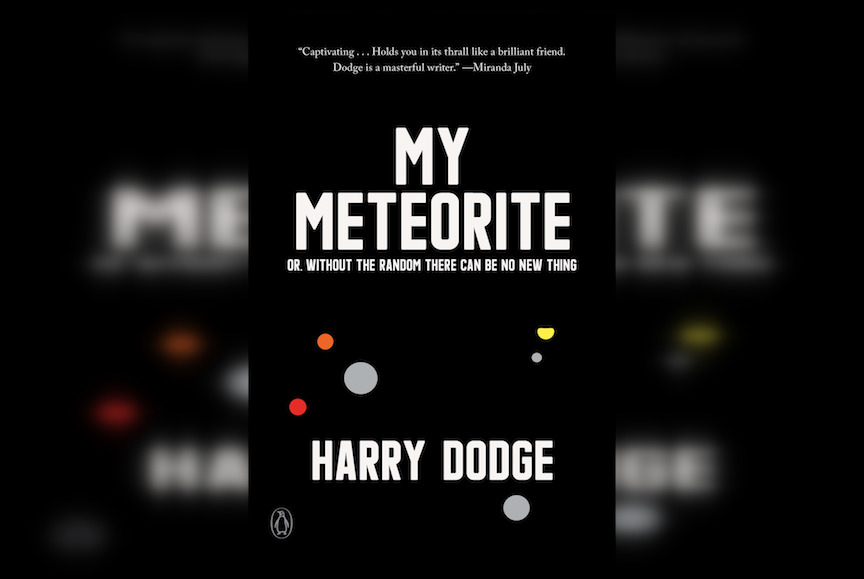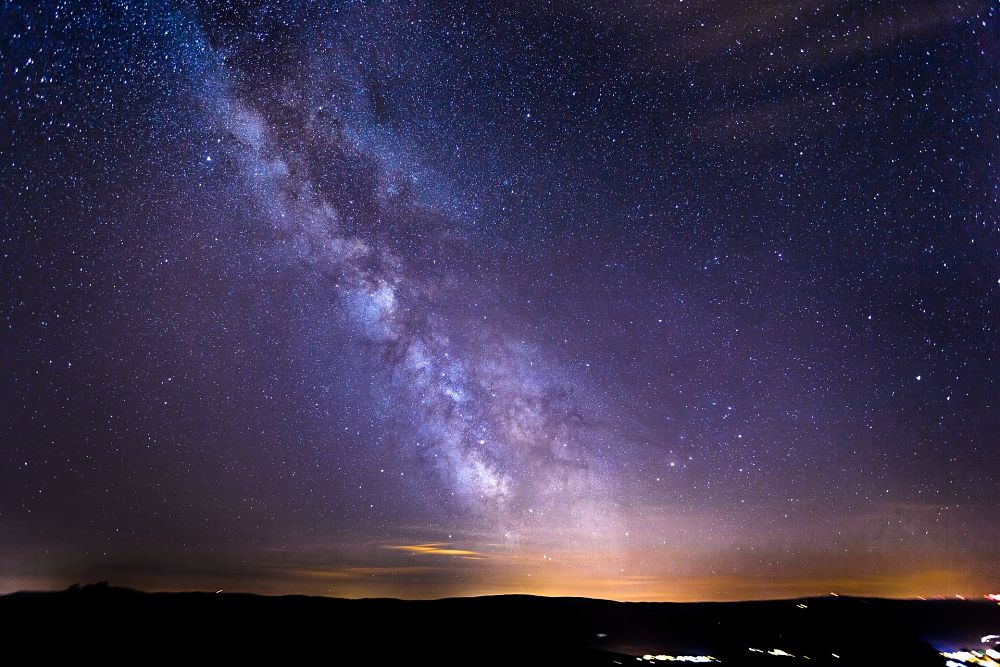Harry Dodge is well known as a visual artist whose works are in the permanent collection of museums such as the Museum of Contemporary Art in Los Angeles. My Meteorite or, Without the Random There Can Be No New Thing is his first book, and it is as experimental in form and subject as his other creations. Like all works of art, it is an attempt to create patterns, to impose some order on our experience of the world. While the book has many virtues, it sometimes fails in that task, leaving us with a postmodern sense of randomness to which the book’s subtitle bows.
Essentially a memoir, My Meteorite is a book-length braided essay composed of multiple strands, including what appear to be pages torn out of Dodge’s diary from the 1970s until the present; references to and quotations from writers like Descartes, Judith Butler, Andy Clark, Paul Virilio, and Georges Bataille, among many others; plus Dodge’s own ruminations on the topics they discuss. And the topics are both numerous and wildly varied: the future of artificial intelligence, the creation of matter and of life, the death of David Bowie, the nature of coincidence, the effects of social bonding, quantum mechanics, family relationships, and the large Campo del Cielo meteorite that Dodge orders from eBay and that becomes a symbol in the book, although it sometimes seems to be a symbol in search of significance.
The challenge of a braided essay is to make the strands cohere, to place them in an associative order that makes sense to the reader and that allows each strand to build upon and contribute to the others. In that, My Meteorite is not always successful. A major theme of the book is Dodge’s discovery of his birth mother and the deaths of his adoptive parents, yet from one page to the next, we can find ourselves in the 1990s and then the 1970s—his father can be dead and then alive again— and interspersed among these scenes are his digressions into myriad other topics, sometimes in seemingly random order. The effect on the reader is sometimes destabilizing; some might even describe it as dizzying.
What unifies the book is the narrator’s voice. It moves from chest-choking elegy, to lyrical fantasy, to philosophical analysis, to crude description, but it remains interesting and sympathetic, a voice we want to listen to.
My Meteorite is not an easy book to read—it demands that the reader work to find or create order in the text—but it is an interesting and worthwhile one. Once read, it invites re-reading, perhaps with a pad and pen in hand to list some of Dodge’s sources for further research. In this time of coronavirus, when many of us are remaining home and catching up on our reading, Harry Dodge’s My Meteorite is worth adding to the list.




